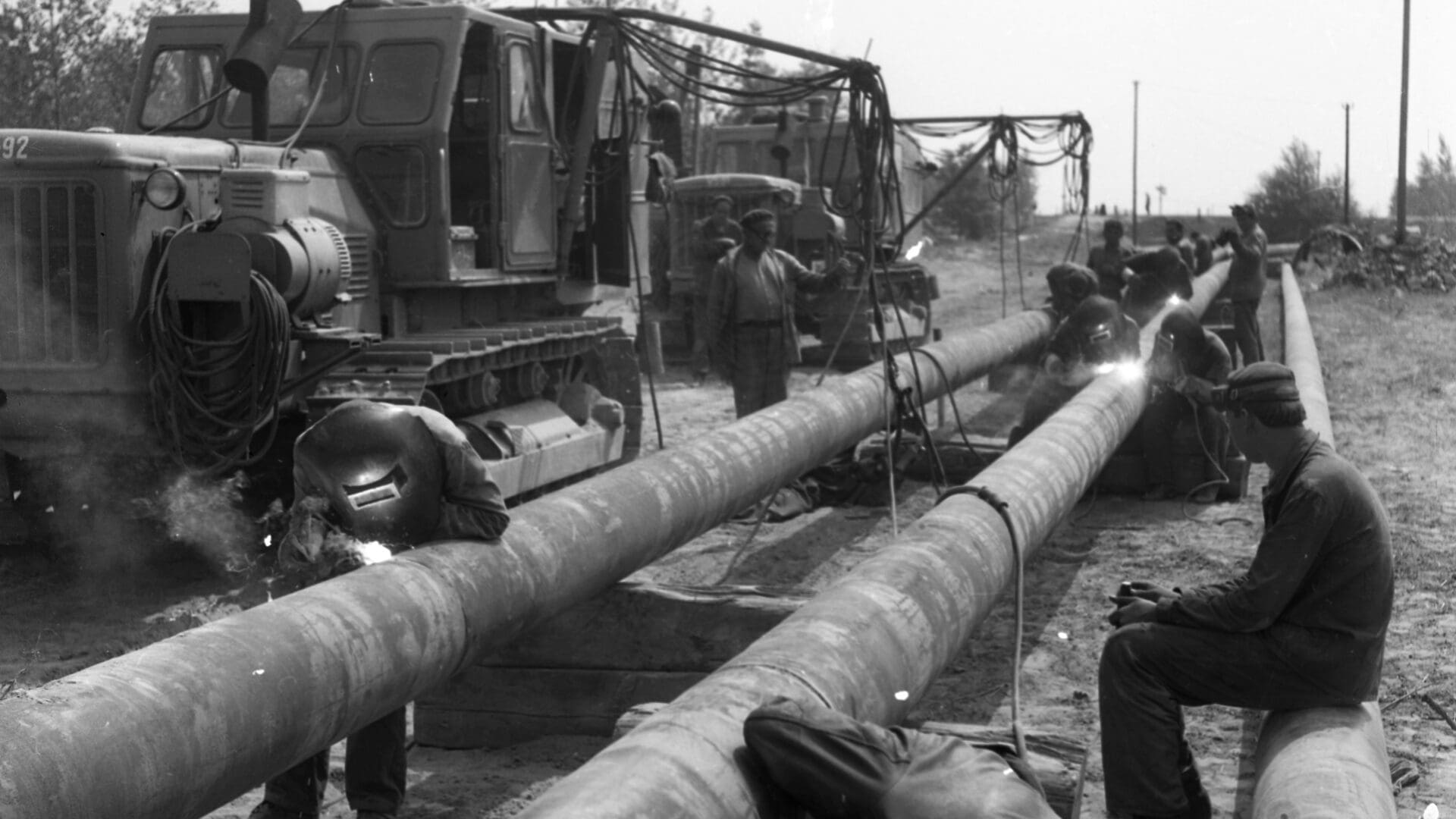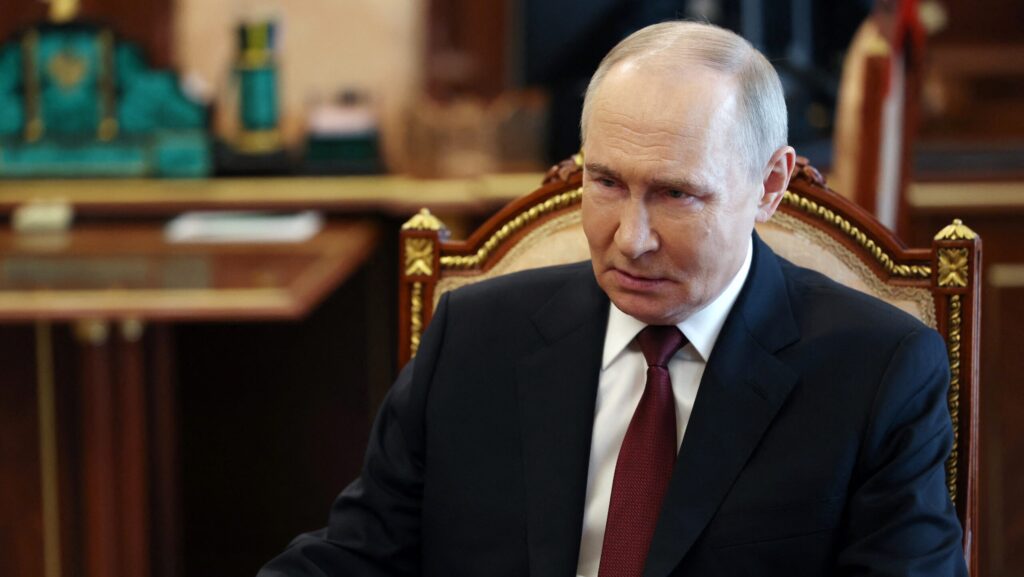The Hungarian government announced on Wednesday, 17 May that it would veto the 11th EU sanctions package against Russia. The first ever blocking of European Union sanctions against Moscow comes after a number of extremely hostile moves on the part of Kyiv. Minister of Foreign Affairs and Trade Péter Szijjártó cited the forced closing by law of Hungarian minority schools in Ukraine as of this September, the inclusion of eight Chinese companies in the list of sanctioned enterprises and the recent leaked U.S. intelligence information obtained by The Washington Post about the alleged Ukrainian plan to bomb the Druzhhba oil pipeline as the reasons for the veto.
To understand the significance of the apparent sabotage plot that according to the leaked documents was proposed by Volodymyr Zelensky himself, we need to take a closer look at the pipeline in question. The Druzhba Pipeline is one of the longest crude oil pipelines in the world. Including its branches, the pipeline, which starts in Almetyevsk, Siberia is 5,500 km long. Running from Siberia to Europe, Druzhba splits into two branches in Belarus. The northern branch runs through Poland to Germany, while the southern branches go to Slovakia, Czechia as well as to Hungary through Ukraine. The pipeline system has the capacity to transfer up to 2 million barrels a day. The decision to build Druzhba was reached in 1958 in the then USSR, and the construction started two years later. By 1964 Druzhba was operational. As each country built their part of the pipeline, the part that runs through their territories is the respective country’s property. It was this latter provision that made it possible for Ukraine to charge transit fees on the energy that passes through its land towards Western European countries, an issue that led to a serious political stalemate both in 2009–2010 and in recent days.
The name of the pipeline itself says a lot about its the history going back to the Cold War era.
‘Druzhba’ means ‘friendship’ in Russian, as the pipeline intended to connect the ‘friendly’ states of the Eastern bloc to provide them, as an act of goodwill, with cheap Soviet energy. Since the collapse of the USSR, the pipeline has become a par excellence example of route-dependency. To a large extent, the region’s inability to shake off its dependency on Russian energy is due to Druzhba, which even decades after the collapse of the political bloc that created it continues to be the major transmission line of energy to the region. Given the difficulty and high costs associated with building an alternative system, until most recently, the Central European region did not have the strength or sufficient incentive to wean itself off the pipeline that ties it economically to Russia. The Russo-Ukrainian war, however, seems to be sufficient motivation for he countries connected to Druzhba to finally seek ways to reduce their dependency.
Breaking dependencies that have defined the economies of several countries since the 1960s is difficult and timely, however. While Hungary is committed to looking for new energy suppliers, as of today, Druzhba still plays a major role in Hungary’s economy, and this can be changed only in the years to come. The economic significance of the Druzhba pipeline for Hungary and other regional countries is demonstrated by the fact that so far it was exempt from EU sanctions. Until now, Hungary, along with some other Central European countries that do not have access to sea transportation routes,
have been allowed to continue to import Russian oil,
as they are heavily reliant on it and the replacing of Druzhba cannot be done overnight. Annually, about 8 million tonnes of oil arrive to Hungary through Druzhba, an amount that is not easy to substitute. Any decision affecting the functioning of the pipeline could have a serious effect on the Hungarian economy.
Given the significance of Druzhba in today’s Hungarian economy, it is unsurprising that there was quite an uproar in Hungary when the news broke that the Ukrainians may have been plotting plans to undermine Druzhba. According to the Washington Post, the recently leaked documents reveal that Zelenskyy argued that ‘Ukraine should just blow up the (Druzhba) pipeline and destroy likely Hungarian [Prime Minister] Viktor Orban’s industry, which is based heavily on Russian oil’.
In a rather unexpected turn, even The Washington Post strongly criticised the Ukrainian President and his outlandish ideas. The paper noted that the documents ‘reveal a leader with aggressive instincts that sharply contrast with his public-facing image as the calm and stoic statesman weathering Russia’s brutal onslaught.’ The paper also highlighted that the bombing would have been an attack on the interests of a NATO member state.
The documents seem to explain the proposition, at least partially, with his personal ‘rage’ towards the Hungarian leadership. The information obtained by The Washington Post speaks of the open hostility of the Kyiv administration towards Budapest. Zelensky’s intention was specifically to harm the Hungarian industry, for Budapest’s alleged closeness to Russia.
The news of the alleged sabotage plan are in sharp contrast with the fact that
Hungary has provided its history’s largest humanitarian aid package to war-torn Ukraine,
and has also sheltered masses of Ukrainian refugees. Such open hostility and willingness to undermine the country’s economy rightfully met with serious outrage in Budapest.
Balázs Orbán on Twitter: “”bombing a pipeline that transfers Russian oil to Hungary, a NATO member”What?! https://t.co/G0I4DqGf4p / Twitter”
“bombing a pipeline that transfers Russian oil to Hungary, a NATO member”What?! https://t.co/G0I4DqGf4p
The leaked documents also included Ukrainian plans to strike targets deep inside the Russian Federation. Else then hitting Russian targets, Zelenskyy also appeared to be advocating for the capture of unsuspecting Russian cities close to the border with Ukraine. The bold actions were supposed to give leverage to Kyiv in case of negotiations with Moscow. While the United States has refrained from providing long-range cruise missiles to Ukraine (HIMARS has a 50-mile range), recently, the United Kingdom provided Kyiv with such weapons (Storm Shadow has a range of 155 miles). Although until now there is no indication that Ukraine has used Western missiles to attack Russian territories, it is believed to have done so with West-supplied drones.
Back to the pipeline issue: it is important to remember that in 2022, just before the war, it was estimated that
Ukraine earned 1,2 billion USD a year from oil and gas transit fees.
Given the significance of the contribution of transit fees to the Ukrainian budget, Kyiv’s concern before the Russian aggression was that Moscow was building alternative routes that would bypass Ukraine’s territory. In Kyiv, the construction of Nord Stream 2 was seen as a project aiming to punish and circumvent Ukraine, depriving it of revenues. As a result, in 2019 the European Commission brokered a deal with Gazprom that committed Russia to sending at least 40 bcm of gas to the EU until 2024. The 2019 deal was signed shortly after Zelenskyy and Putin met for the first time face-to-face in Paris. Apparently and ironically, at the time Zelenskyy said about the deal that ‘Europe knows, we won’t fail it in terms of energy security’. What seemed to be done to serve Ukraine’s interest then, is now used against EU member states as an accusation. The issue of transit fees also begs the question—if there were no oil transit fees to be earned should the Druzhba pipeline cease to operate, how would Ukraine make up for the lost money?
But it is not only Ukraine that seems to have issues with the pipeline. There is an ongoing disagreement between the Hungarian oil and gas company, MOL and Ukraine over the transit fees. Ukraine proposed to raise transit fees from about 13 EUR to 21 EUR per tonne which the Hungarian oil giant is obviously not willing to accept. As of now, the negotiations between Ukraine and MOL seem to have reached a deadlock. In addition, it has been reported by Hungarian news website Index that according to anonymous sources, Ursula von der Leyen has reportedly encouraged Ukraine to stop the flow of Russian oil to Hungary. According to Index, the CEO of Ukrtransnafta received a message from Brussels from European Commission President Ursula von der Leyen that said ‘if Hungary continues this behaviour, feel free to stop the oil transport toward the country.’
MEP Tamás Deutsch, the leader of the Fidesz group in the European Parliament, stated during a press conference in Budapest on Wednesday that
Ursula von der Leyen must clarify without delay whether she indeed requested or instructed Ukraine to halt oil transportation through the Druzhba pipeline
as a means of exerting political pressure on Hungary. Speaking in response to a question during the press briefing regarding the visit of the Budgetary Control Committee of the European Parliament to Budapest, Deutsch stated that the brutal efforts to drag Hungary into the Russo-Ukrainian war are becoming increasingly evident. Deutsch added that Ukraine’s actions, which are becoming more aggressive and unfriendly, are part of a pattern.
Referring to the reports suggesting that Volodymyr Zelensky may have at one point contemplated the destruction of the Druzhba pipeline, Deutsch emphasised that
such a step would constitute an act of terrorism against a member state of the European Union
and a NATO member country. It is only natural to expect that both the European Union and NATO would respond resolutely to the preparation of a terrorist act targeting one of their members. Deutsch added that the news also included information that the President of the European Commission, Ursula von der Leyen allegedly conveyed to the Ukrainian oil transport company her approval of halting the supply of oil as part of the pressure exerted on Hungary.
At the press brief, Deutsch demanded that Ursula von der Leyen promptly clarifies whether she indeed requested or instructed Ukraine to halt oil transportation as a means of political pressure against Hungary.
Left-wing daily Népszava reported that they had asked the Hungarian representative office of the European Commission as well as von der Leyen’s press people for a comment, and both denied the allegations, with the Hungarian office stating: ‘This is fake news. President Ursula von der Leyen has never been in contact with the CEO mentioned in the articles and has never recommended any action to anyone regarding the Druzhba pipeline.’








